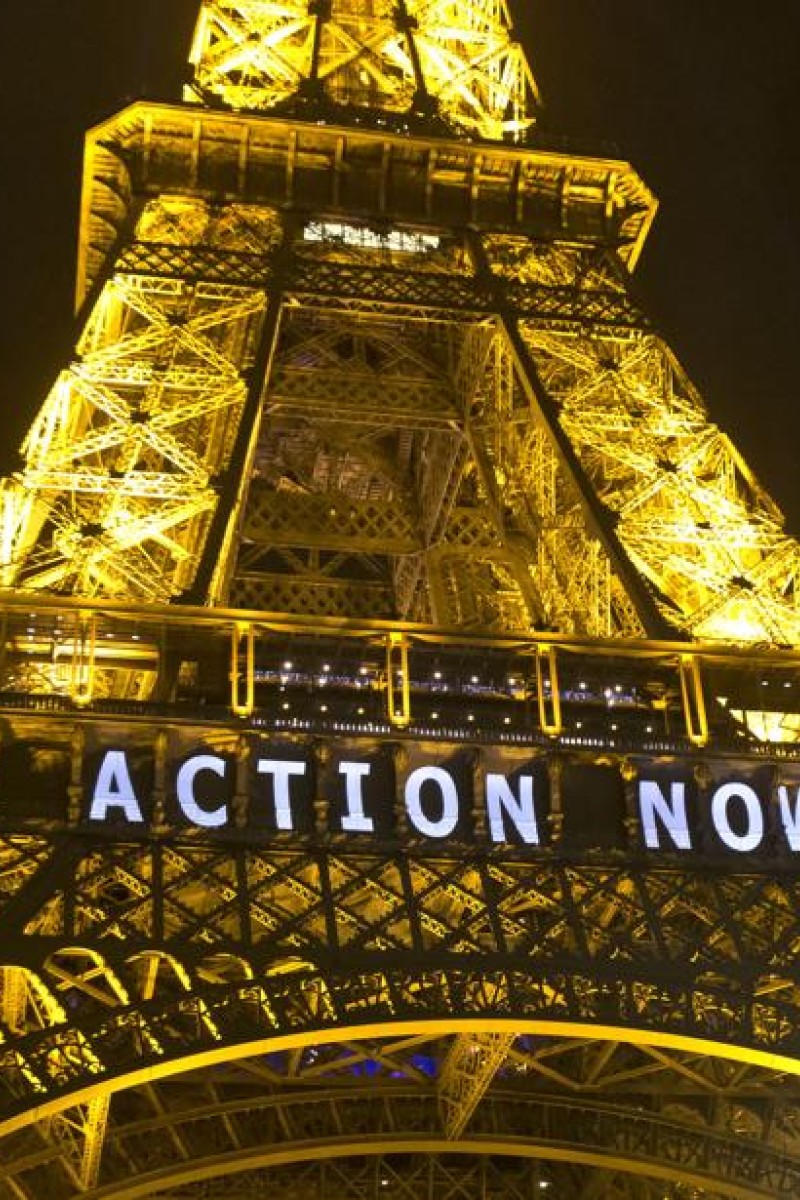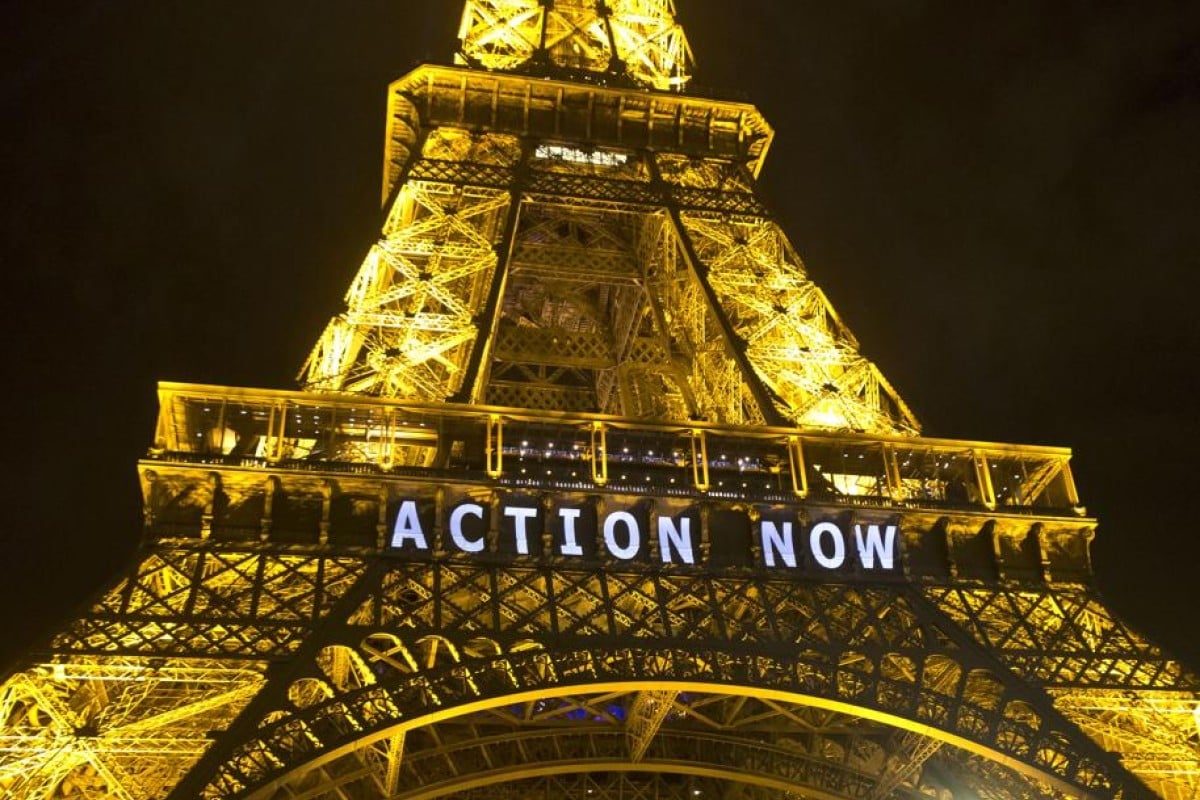
The 2010s: From #MeToo to the Hong Kong protests, a decade in human rights
A lot of progress has been made, such as legalising same-sex marriage, but humanitarian crises like the Rohingya must not be ignored
 The Eiffel Tower lights up with the slogan "Action Now", referring to the COP21, United Nations Climate Change Conference in Paris in 2015.
The Eiffel Tower lights up with the slogan "Action Now", referring to the COP21, United Nations Climate Change Conference in Paris in 2015.The past decade has seen both great strides and major setbacks in the fight for human rights; here are theones that stood out.
September 26, 2014: Occupy Central
A series of peaceful sit-ins were held in Hong Kong’s business district to protest against proposed reforms to the Hong Kong electoral system that were seen as restrictive and a sign of Beijing’s encroachment on Hong Kong. The movement lasted for nearly three months, as protesters – mostly students – camped outside government offices, causing major thoroughfares to close.
June 26, 2015: The US Supreme Court issues a 5-4 ruling that gay marriage is legal, legalising same-sex unions nationwide
In a landmark ruling, the US Supreme Court made it legal for same-sex couples to marry. The divided court’s decision established a new civil right and gave a historic victory to gay rights advocates.
December 2015: Paris Climate Agreement
Halfway through the decade, some 195 nations committed themselves to tackling the climate crisis head-on by reducing man-made greenhouse gas emissions. The agreement became known as the 2015 Paris Climate accord. In 2019, the Trump administration announced that the US would pull out of the agreement, following the President’s claims that it would punish American workers and benefit foreign countries.
11,000 scientists say the Paris agreement is not enough
October 2017: #MeToo
#MeToo has been a revolution in women’s rights, bringing millions of women together, giving them the courage to report sexual harrasment and abuse. The phrase was first used in 2006 by a female sexual assault survivor and activist on her MySpace account. Fast-forward to 2017, and more than 200 women – including major celebrities – revealed stories of sexual harassment and abuse at the hands of Hollywood producer Harvey Weinstein. A worldwide social media movement ensued, as women (and some men) around the globe came forward with their own experiences of sexual harassment.
August 2017: Rohingya crisis
By the end of August 2017, more than 600,000 Rohingya Muslims had fled their home state in Myanmar to escape ethnic persecution, mass killings, sexual violence and torture by the national military. The military denied any wrongdoing, despite first-hand and eyewitness accounts. Democracy activist and Nobel Peace Prize recipient, Aung San Suu Kyii, also the State Counsellor of Myanmar, faced worldwide criticism for her alleged inaction in the face of the humanitarian crisis.
2018: Facebook-Cambridge Analytica scandal
In 2018, it was revealed that political firm Cambridge Analytica harvested data from millions of people’s Facebook profiles without their consent, and used it for political advertising purposes. Facebook stock prices plummeted in the wake of the scandal, eventually leading to Facebook CEO, Mark Zuckerberg testifying before the United States Congress.
Fake news? How to check your bias before you share news on social media
June 2019: Hong Kong extradition movement
Millions of people took to the streets to demonstrate their opposition to a controversial extradition bill introduced by Chief Executive Carrie Lam Cheng Yuet-ngor. The movement evolved into a wider call for democracy in the city-state, with five core demands touted by protesters. The Hong Kong police have been accused of using excessive force against protesters, while protesters have vandalised major areas in Hong Kong, also targeting specific businesses seen as “pro-China”.
2010-19 Uighur tensions boil over
The second half of the decade saw major crackdowns against mostly Muslim minority groups in the northwest Chinese region of Xinjiang. A report to US Congress in October 2018 concluded that China was committing “crimes against humanity” by locking up hundreds of thousands of Uighur Muslims in re-education camps. China at first denied the claims, then said the camps were vocational training facilities. Leaked documents and accounts from people who have been released from the camps tell a different story.
